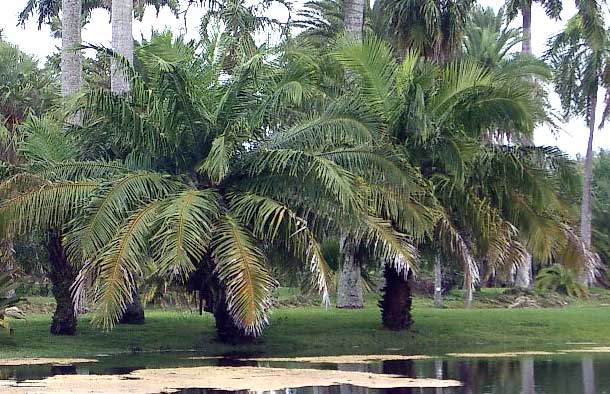Elaeis oleifera
From PACSOA Wiki
| Welcome to the PACSOA Palms and Cycads wiki!
If you have any information about this species, please help by updating this article. Once you are registered you can contribute, change, or correct the text, and even add photos on this page. Click on the edit tab above and play around. Any mistake can be easily corrected, so don't be afraid. |
Synonymy:[edit]
Corozo oleifera
Common Names:[edit]
American Oil palm
Distribution & Habitat:[edit]
Costa Rica to the lower Amazon River in Brazil.
Description:[edit]
A large, solitary, pinnate-leaved palm which has dense clusters of crowded flowers and bright red fruit. This fruit yields a high quality palm oil.
General:[edit]
Generally less robust or as impressive as E. guineensis, shorter, with a thinner trunk and smaller more reedy canopy, rare and not often grown ornamentally but still very attractive with its shiny deep green leaflets. Used locally for palm oil, but not grown on anywhere near the same scale as its close relative E. guineensis. However, Elaeis oleifera is increasingly used in Latin America as a parent for the hybrid between the two species. Elaeis oleifera amongst other things imparts a shorter staying fruit bearing trunk for the ease of harvest. Hybridisation is also done in Southeast Asia to increase efforts to provide disease resistance for bud rot and to increase the proportion of unsaturated fatty acids in the oil found in E. oleifera onto the more prolific bearer E. guineensis.
Culture:[edit]
Sunny, moist, but well drained position. Tropical in its requirements.
Contributed by:[edit]
Kyle Wicomb (Figure 1)
Pablo Boni Herrera (Figure 2)


